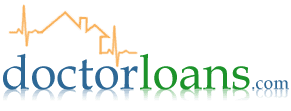Doctor Loans FAQ
Frequently asked questions about Doctor Loans.
Doctor Loans FAQ
Frequently asked questions about Doctor Loans
Physician Loan Basics
A Physician Loan is a specialized mortgage program designed specifically for medical professionals. These programs are available to:
- Medical Doctors (MD)
- Doctors of Osteopathy (DO)
- Dentists (DDS/DMD)
- Residents and Fellows
- Recently matched medical students
The program offers unique benefits including little to no down payment options (depending on loan amount) and no Private Mortgage Insurance (PMI). This translates to lower monthly payments and access to financing options not available to the general public.
Physician loans differ from conventional mortgages in several important ways:
- No PMI requirement, even with a down payment under 20%
- More flexible debt-to-income ratios that account for future earning potential
- Deferred student loans may not count against your debt-to-income calculations
- Ability to close before starting a new position with just an employment contract
- More flexible credit requirements in some cases
- Higher loan limits compared to many conventional programs
Numerous options are available, similar to conventional loans:
- 30, 20, and 15-year fixed-rate mortgages for long-term stability
- Adjustable-rate mortgages (ARMs) with 3, 5, 7, or 10-year initial fixed periods
Your Physician Loan Expert will help you find the best choice in line withyour short and long-term financial and investment objectives.
Private Mortgage Insurance is an insurance policy paid by a borrower to
protect the lender when a mortgage exceeds 80% of the home’s value.
Physician loans eliminate the need for PMI, even with little to no down
payment, resulting in substantial monthly savings compared to
conventional loans with less than 20% down.
Qualification and Eligibility
Qualification depends on individual circumstances. A general guideline:
- Take your gross monthly income and multiply it by 43-45%.
- Subtract your minimum monthly debt payments on existing debt (car loans, credit cards, etc.)
- The remaining amount represents your maximum monthly housing
payment, which includes principal, interest, property taxes,
homeowners insurance, and HOA dues (if applicable).
This is a significant advantage of Physician Loans over conventional mortgages, which usually include an estimated student loan payment regardless of deferment status.
Application Process
Common documentation requirements include:
- Government-issued ID
- Employment contract or proof of current employment
- Recent pay stubs (if currently employed)
- W-2 forms from the past two years (if applicable)
- Federal tax returns from the past two years (if self-employed)
- Bank statements showing sufficient funds for closing
- Medical license or medical school diploma
- Proof of residency/fellowship acceptance (if applicable)
While timelines vary by lender and individual circumstances, you can generally expect:
- Pre-approval: 1-3 business days
- Full approval: 2-3 weeks
- Closing: 21-30 calendar days from application
Absolutely! Getting pre-approved before house hunting is highly recommended. Pre-approval:
- Confirms how much you can borrow
- Strengthens your offer when you find the right home
- Identifies potential issues early in the process
- Gives you a competitive edge in tight housing markets
Our service can connect you with a mortgage professional for pre-approval in as little as 24 business hours, although many will reach out much sooner.
Property Considerations
Most physician loans are designed for primary residences, including:
- Single-family homes
- Condominiums
- Townhouses
Investment properties and vacation homes typically don’t qualify for physician loan programs, though some lenders may offer specialized products for these purposes.
Learn More About Physician Home Loans No Matter Where You Are in Your Career
Designed for Physicians at Every Stage

Medical Students
Build credit and financial readiness now to prepare for homeownership
read more »

Residents & Fellows
Buy now instead of renting, even with student debt
read more »

New Attending Physicians
Purchase before starting your new position
read more »

Established Physicians
Upgrade your home with specialized financing options
read more »

